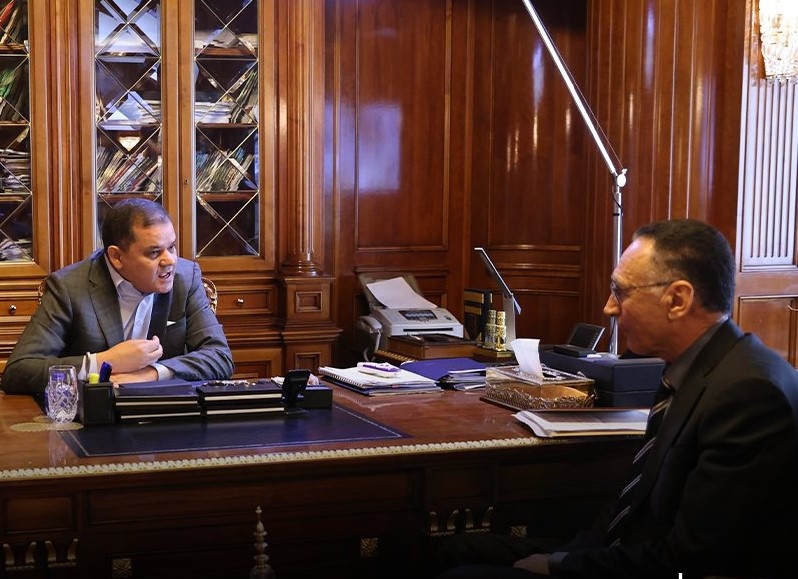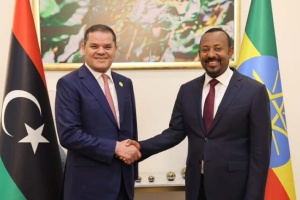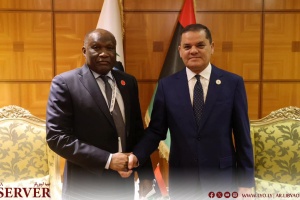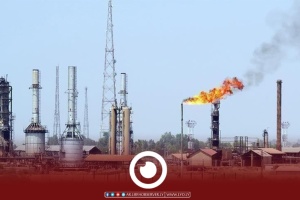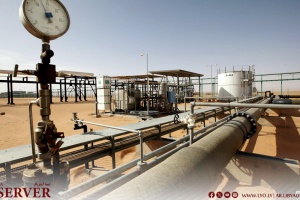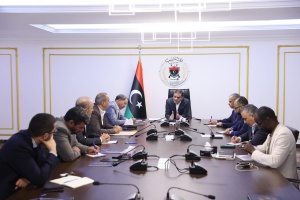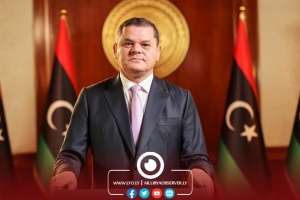The Libyan Minister of Economy and Trade, Mohammed Al-Huweij, confirmed that the economy was stable, noting in a meeting with the Prime Minister Abdul Hamid Dbeibah that the increase in the exchange rate of dinar to dollar was accidental, and pointed to what was stated in a recent International Monetary Fund report regarding Libya’s possession of foreign exchange reserves exceeding 82 billion dollars.
Al-Huweij presented at the meeting on Sunday a briefing on the Ministry’s plan to develop the Commercial Registry Authority and activate it according to the spatial jurisdiction of the courts of appeal, and digitize procedures within the Authority to facilitate the issuance and renewal of records and trademarks.
The PM, meanwhile, called for the necessity of holding a meeting of the Balance of Payments Committee formed during the last cabinet meeting and urged for submitting the results of the necessary decisions pertaining to its work.
Dbeibah discussed with Al-Huweij the observations of the Audit Bureau’s report for 2022, directing the latter to address everything that was reported about the Ministry of Economy and its affiliated entities.
It is noteworthy that the exchange rate of the US dollar saw an unprecedented rise in the parallel market since the previous Government of National Accord approved financial arrangements that led to its price stabilizing in the neighborhood of five dinars in the parallel market about 5 years ago.
Dbeibah held the government designated by the House of Representatives responsible for the increase in the dollar-to-dinar rates, saying during a cabinet meeting held Thursday in the city of Gharyan that the reasons were due to parallel spending, which exceeded 15 billion dinars, in reference to the HoR-designated government’s spending.
Prime Minister of the HoR-designated government, Osama Hammad, responded to these accusations, saying that the increase in foreign exchange rates in the parallel market was "made-up and unjustified", since the Central Bank continueed to disburse foreign exchange through the specified channels and at the officially specified price.
Hammad accused Dbeibah's government of squandering public funds, practicing deception, and creating illusions through his promises to the Libyan people, stressing that its continuation in power would lead to the collapse of the economy and the "bankruptcy of the state".

